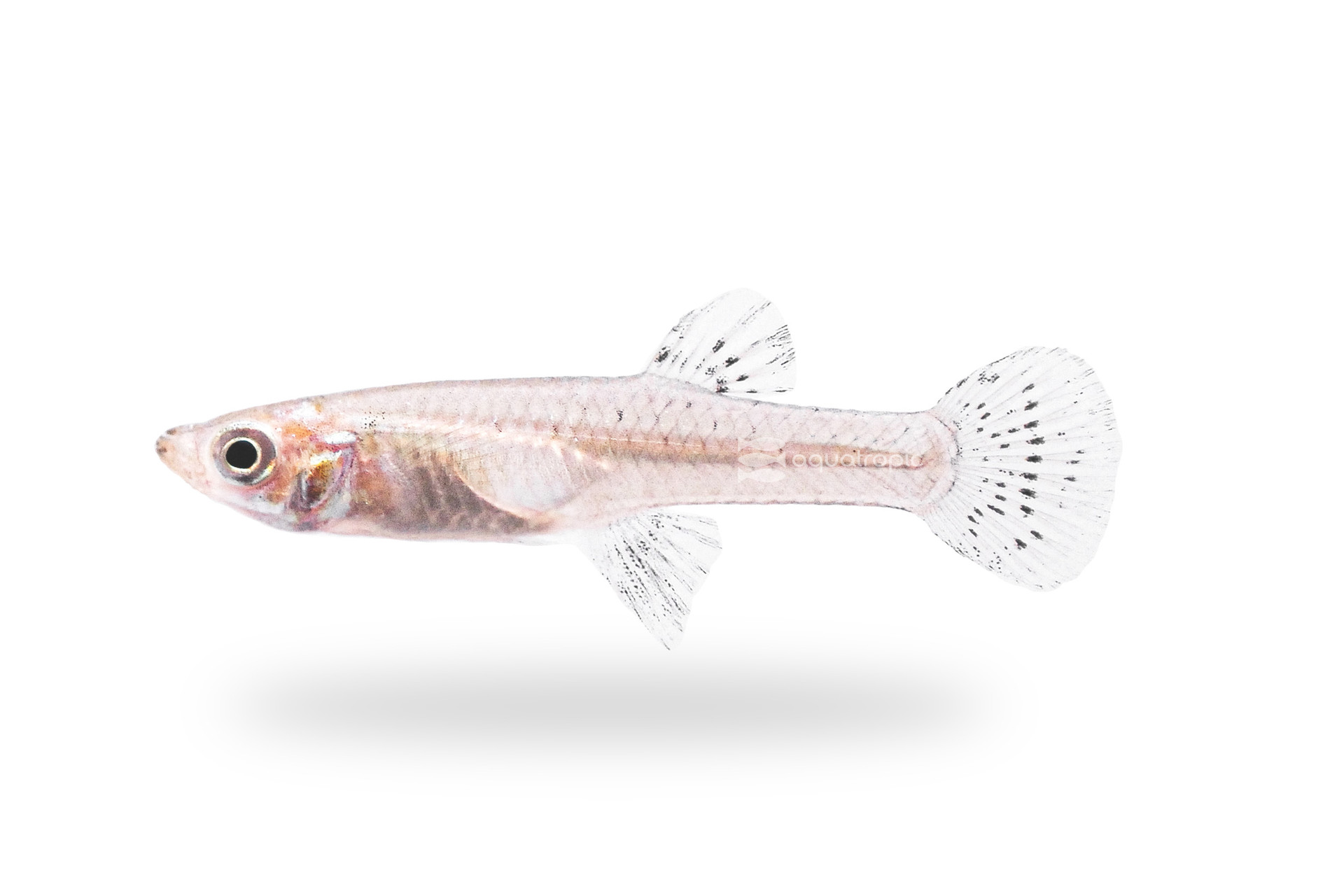Mosquito No More

Gambusia affinis has the distinction of likely being the most introduced fish of all time. For over a hundred years, people have been introducing the Western Mosquito fish to environments all over the world; the earliest record we could find was in 1905! Originally found in the southern Mississippi drainage, now this species (as well as Gambusia holbrooki, another species in the genus which was long thought to be the same species) can now be found on every continent in the world save Antarctica. Why? As a biological alternative to pesticides in the fight to control mosquito populations.
Gambusia affinis is, without exaggeration, a miraculously hardy fish. It can thrive in an astounding range of environments, from freshwater to brackish, in pH ranges from sub 6.0 to over 8.0. They are tolerant of pollution loads that would wipe out most fish, can take endure salt loads higher than seawater for extended periods and are completely fine with dissolved oxygen levels that are better suited for lungfish. They can live in very warm climates; they've been shown to survive exposure to temps over 100 degrees and even over 105 for short periods. For reference, 104 is a very common temperature for hot tubs. The limit to this hardiness is the cold side, they do not do well in temperatures below 50 degrees Fahrenheit. In short, they can not only live, but thrive in many waters where mosquitoes reproduce most effectively and many other fish can not.
Mosquito fish reproduce so well in captivity (or anywhere else for that matter) that they are nearly impossible to stop from doing so. Females bear up to 100 live young which can take surprisingly large food. Some studies have shown the that the females can begin their reproductive cycle within weeks of hatching out. For the home hobbyist, if you have a male and a female, they will reproduce and the babies can / will take any food small enough to get in their mouths, powdered processed foods will work. The only way your fish won't expand their population is if the fry cannot hide from the parents as this species is known for cannibalizing their young. This fecundity has not only helped them establish populations everywhere they can over winter, but has also made them popular as a feeder fish for hobbyists who raise large carnivorous fish.
Both species of Mosquito fish are voracious predators of just about everything, especially eggs, larvae, small fish and invertebrates near the top of the water column; though they also consume just about everything, from everywhere in the water column. It is the blend of all their characteristics that has made them so popular as mosquito control mechanism. It isn't that they prefer to eat mosquito larvae, its that they eat voraciously, primarily in the zone where mosquitoes lay eggs and larvae grow, can thrive and reproduce quickly in that same environment and as such, have been very effective in this role.
While few people keep mosquito fish as aquarium pets, many people still stock them in their ponds to help control mosquito population. This is a job well suited for the mosquito fish. If your pond includes other fish, the Gambusia will need no particular attention to help them along. There are a few things to be conscious of with keeping mosquito fish. The same traits that make them so good at wiping out mosquito populations gives them a high potential for being an invasive species, especially in warm climates, so take care to limit the potential for their escape. In colder climates, your mosquito fish will not overwinter, and you'll need to restock them in the spring. Mosquito fish do a great job at eating mosquito larvae, but they do not prefer them; they eat everything in their path. This can limit the reproduction of other fish and amphibians like frogs that you also may want in your pond. The non selective nature of their predation can also be a factor in algal blooms as the Gambusia eat the zooplankton that would usually consume phytoplankton.
Gambusia affinis have a voracious appetite and an uncanny hardiness, this combined with their ability to reproduce makes them likely the best biological mosquito control you can buy for your pond. There are other fish available to help with this, like Guppies, Tilapia, Bettas and others though none are quite as voracious as the Mosquito Fish. It is time to start thinking about your pond this year, so give your pond store or LFS a shout and ask them about Gambusia species from Aquatropic today.
https://www.sciencedirect.com/topics/immunology-and-microbiology/gambusia
https://nas.er.usgs.gov/queries/factsheet.aspx?SpeciesID=846